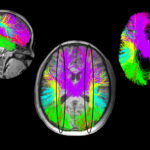Going back to school with a chronic condition

Going back to school can be a time of excitement for many families: Your kids are looking forward to reconnecting with their friends — and you’re looking forward to watching them learn and grow. But for caregivers of children and teens with chronic or complex conditions, preparing for a new school year involves much more than shopping for notebooks and backpacks. Whether your child takes medication, has special nutritional requirements, requires educational adjustments, or has other needs, some advanced planning can go a long way in helping ease the transition back to school. Here are some things to consider this fall.
Reach out
Don’t wait until your child has an urgent medical concern to contact their school nurse, guidance counselor, and other specialists. These professionals can be wonderful allies and advocates for your family, but you may need to be proactive and reach out to them, says Jessica McCaig, a clinical social worker in the Center for Advanced Intestinal Rehabilitation at Boston Children’s Hospital. Ideally, you’ll make these connections before the school year starts, but even a phone call or meeting in early fall — or throughout the year — can help foster these important relationships.
If your child needs to take medication, gets their nutrients through a feeding tube, or has chronic headaches, gastrointestinal problems, or asthma, the school nurse should know. Likewise, the school psychologist, social worker, or guidance counselor can be a good resource if your child struggles with anxiety, depression, or behavioral issues.
Talk to teachers
Your child’s teacher may be the first person to notice that they’re having a health problem — but only if they know what to look for. Let teachers and support staff know that your child has a chronic condition and explain what signs might indicate trouble. For example, if your child has epilepsy, tell their teacher how to recognize a seizure. You should also clue teachers in about special needs — like access to a private bathroom if your child has a gastrointestinal or urological condition — that might be embarrassing if discussed publicly.
School personnel especially need to understand your child’s diagnosis and treatment plan if they have a complex condition or a condition that may not have obvious physical symptoms or that may not be treated solely with medication. Examples of these conditions include chronic pain disorders and functional gastrointestinal disorders, explains psychologist Julie Snyder, director of the hospital’s GI Psychology Service. Kids with these diagnoses often respond best when they can use active coping strategies, such as physical movement and psychological techniques, to manage symptoms in the academic environment. You and your child’s clinicians may need to educate school staff on the need for such coping mechanisms to be integrated into their educational plan.
Know your rights
“Access” doesn’t necessarily mean that your child needs to be able to maneuver through the building in a wheelchair or walker, although it could. It can also refer to equal access to an education and the opportunity to participate fully in all aspects of school life. Section 504 of the Rehabilitation Act of 1973 is a law that prohibits discrimination against individuals with disabilities by programs and activities receiving federal financial assistance. To receive services under a 504 plan, your child must have a mental or physical impairment that has substantially impaired a major life activity and requires special accommodations. These can include adaptive equipment, assistive technology devices, an aide, assistance with health needs, school transportation and other related resources.
However, some school-based services for kids with complex conditions can vary throughout states and throughout the country. Have documentation on hand to share with the school nurse, administration, or both, whether that means a 504 plan, individualized education program for special education, or simply a clinician’s note outlining your child’s needs.
Get more answers about your child’s health.
Related Posts :
-

Which pain medication is right for your child? What a pediatrician wants parents to know
There’s no shortage of safe and effective pain medications for children. Acetaminophen (commonly known as Tylenol), ibuprofen (Motrin, Advil), ...
-

Thanks to Carter and his family, people are talking about spastic paraplegia
Nine-year-old Carter may be the most devoted — and popular — sports fan in his Connecticut town. “He loves all sports,” ...
-

Unveiling the hidden impact of moyamoya disease: Brain injury without symptoms
Moyamoya disease — a rare, progressive condition that narrows the brain’s blood vessels — leads to an increased risk of stroke ...
-

Genomic sequencing transforms a life: Asa’s story
Asa Cibelli feels like he’s been reborn. The straight-A middle schooler plays basketball and football, does jiu jitsu, is ...





